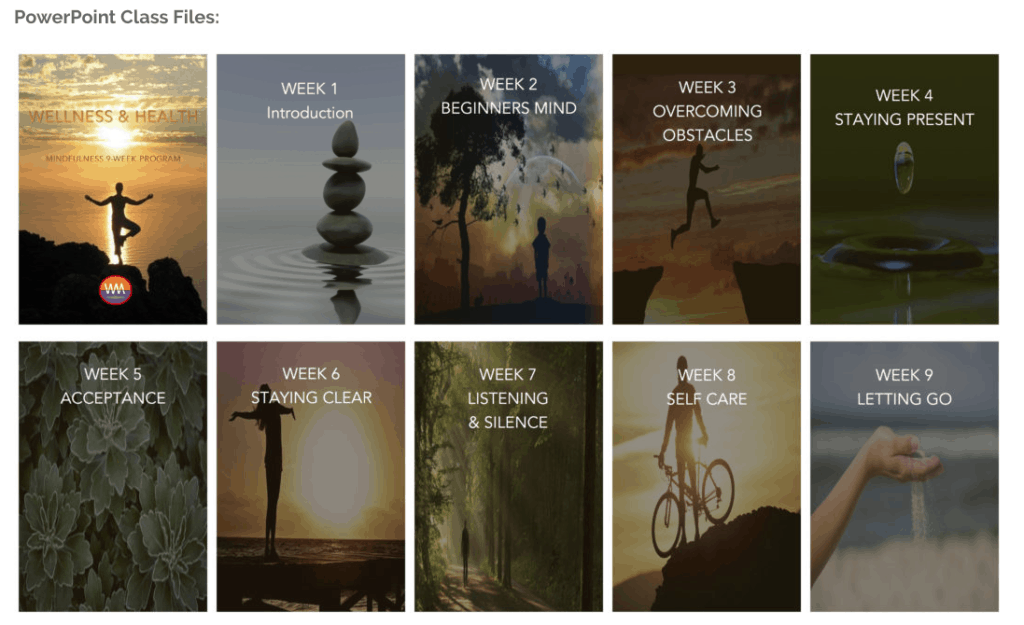
About Course
In this module, we dive into the process of embodying Mindfulness-Based Recovery & Performance, for our Health & Wellness. Over the course of nine lessons provide the framework to integrate body, mind, spirit, eating habits, and overall health, wellness, peace, and serenity. Knowing that life is stressful and complicated, we look to even it out, with tools that give you the ability to recover from the stress, worry, and concern that infiltrate our lives every day.
This course offers the tools needed to provided and suggested by the mindfulness teacher/coach, you will be able to engage your left brain, the rational side of your mind, and the right brain, the more intuitive side of your mind, to have a fully integrated view of life, health, and wellness. By engaging both sides of your brain you will become more balanced, alive, and aware of your surroundings.

IF you are like most people and me today, we are dealing with a lot of stress. Some may say that we are living in a society that is dealing with PTSD. Between the 24×7 news, about war, famine, violence, shock, and awe, never mind the other issues that plague our society like drug usage, and addiction to drinking, drugging, eating, spending, sexing, shopping, or screening, we are all trying to cope in better ways… isn’t it?
And the thing about stress, when left unchecked produces excessive amounts of the hormone cortisol and triggers our brain’s pituitary glands, and creates an amygdala fight, flight, freeze, or fawn response, otherwise known as an amygdala hijacking, a term coined by Daniel Goleman.
An Amygdala Hijack is an immediate and overwhelming emotional response out of proportion to the stimulus because it has triggered a more significant emotional threat. The amygdala is the part of our brain that handles emotions. During an Amygdala Hijack, the amygdala “hijacks” or shuts down the neocortex, which is responsible for memory and balance.
In this course we provide you with the tools to manage, to reboot your brain, and balance the cortisol levels and brain activities. It’s a natural way of helping develop increased cognition to make informed choices. Recovering from stress is the primary objective of mindfulness, as it enables individuals to gain a higher degree of cognitive functioning
Course Content
Introduction – Mindfulness-Based Recovery Program (MBRP)
-
Lesson 1 – Introduction – MBRP
-
Module 1 – Introduction Quiz
